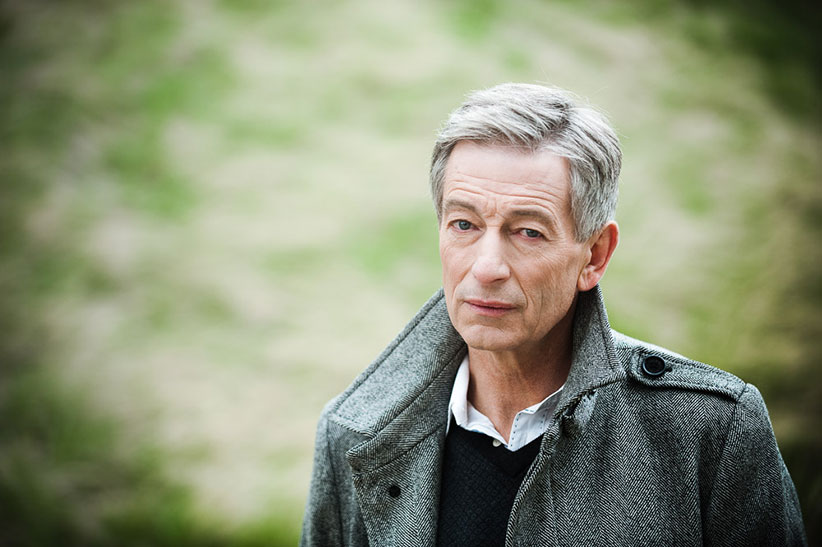Scott Gilmore: A letter to the Hall family
On behalf of all of us who work abroad in difficult places, I want you to know how grateful we are for your moral courage
Share

There is nothing I am capable of writing that will make your heartbreak any less painful. I can’t imagine there exist any words that could give you the comfort you need, after kidnappers killed your father Robert Hall in the Philippines.
By all accounts I’ve read, Robert was a remarkable man. He was clearly driven to do and see far more than anyone I’ve ever known. Racecar driver. Pilot. Entrepreneur. Championship wrestler. Actor. Coach. Sailor. Traveller. Son. Brother. Father. Grandfather. That’s a damn fine epitaph, one for the ages. I wish I had known him.
Unless someone has gone through a similar ordeal, we simply can’t imagine the horror you have endured. If the death of a loved one is the worst hell, what could it possibly be like to have them kidnapped, so you hope and despair and mourn every single day, again and again? In your case, for nine long months.
And worse yet, how can any of us comprehend the impossible decision you were forced to make about his ransom?
Right now, around the world, there are hundreds of aid workers, journalists, tourists and missionaries being held hostage. In some cases they were kidnapped by religious fanatics; in others it was by violent nationalists. In Robert’s case, it was Abu Sayyaf, who pretends to have a higher agenda, but who are in truth merely criminals.
Related: Robert Hall’s family says it backs the no-ransom policy
The one thing these kidnappers almost always have in common, though, is motive. They do it for the payment, be it money or infamy. A terrified western face on a grainy video gives them attention, which could mean more political leverage, more recruits or simply more notoriety. And it brings them money. A lot.
It is impossible to properly measure the size of the hostage industry, but we know that over $165 million has been paid just to al Qaeda and its affiliates over the last few years, in return for the safe return of hostages. And that money, in turn, has been used to fund more terror, more crimes, and to drive the demand for more hostages.
Most western governments claim they don’t negotiate with terrorists and cynically assure the public they don’t pay ransoms. But the kidnappers know that almost all of them do, and it was believed up until recently Canada did as well.
Prime Minister Justin Trudeau recently announced that the new explicit policy would be we no longer pay for hostages. Period. But for you, what that really meant was that Canada would not pay for Robert. It was probably the hardest decision this Prime Minister has been forced to make, and to your eternal credit, one that you supported.
You told Canadians “…our family, even in our darkest hour, agrees wholeheartedly with Canada’s policy of not paying ransom to those who would seek to undermine the fundamental values with which my father lived his life. We stand with the ideals that built this country; strength of character, resilience of spirit, and refusal to succumb to the demands of the wretched, in order to satisfy the bloodlust of the weak. We will persevere.”
On behalf of all of us who work abroad, and those of us who have loved ones overseas and who pray and hope they will come home one day, I want you to know how grateful we are for your moral courage. We are all mourning Robert’s death, and we are hurting with you, and we know you have tried to make us all a little safer, to make it a little more likely our loved ones will come home.
And from me personally, thank you. I have not lost a family member like you have, but I have lost friends and colleagues in similar circumstances. And, over the years of working overseas in difficult places, I have developed an intense private fear of being kidnapped myself. Your sacrifice means more to me than you realize, and more to thousands of other Canadian diplomats, journalists, peacekeepers, aid workers and travellers.
I don’t go to church as often as I should. And when I do go, I rarely take any comfort from the priest, his sermons or his promises of an afterlife. I take comfort from the people around me. It’s a large stone church, and there are so few of us who attend the hymns echo over the mostly empty pews. But those of us who do go, most of us strangers to each other, always cluster together. We do this instinctively, because being close to others makes us feel connected to something larger than ourselves, makes us feel like family.
And that is what you have done, brought Canadians closer together. Canada feels more like a family today, sad and heart worn perhaps, but closer and more connected. And as a family we are mourning for Robert with you.